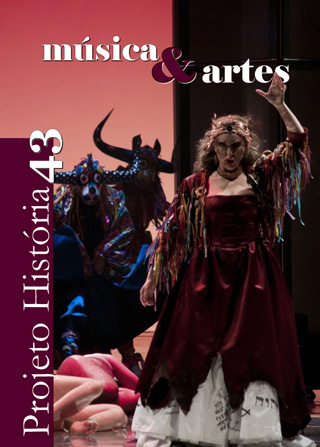Broken Mirrors: samba and work in “Estado Novo” times
Keywords:
Estado Novo, Getúlio Vargas Government, Work ideology, Popular Music, SambaAbstract
The siege of silence which the "Estado Novo" dictatorship set up around the practices and discourses that might clash with the established standards led many people for a long time to believe in the triumph of an alleged "chorus of national unanimity". Traveling in the opposite direction of this thought, which extends its reach to the fields of popular music, this article attempts to lift a veil that covers part of the demonstrations that mistuned the "chorus of excited" during the estado-novista regime. It focuses on the dissonant voices of samba produced at the time, despite the hard censorship of government agencies (especially the DIP, Department of Press and Propaganda). Besieged by the forces of conservatism, not really all popular composers let themselves get on the network of the cult of work propagated by the government's ideology. Dissonant lines were heard here and there, showing that as dictatorial or supposed totalitarian to be this or that scheme, you can never entirely shut the dissent or differences up. And even these are expressed in the representations of gender relations accepted in popular music.Metrics
Metrics Loading ...
Downloads
Published
2012-04-10
How to Cite
Paranhos, A. de P. (2012). Broken Mirrors: samba and work in “Estado Novo” times. Projeto História : Revista Do Programa De Estudos Pós-Graduados De História, 43. Retrieved from https://revistas.pucsp.br/index.php/revph/article/view/7978
Issue
Section
Artigos
License
Copyright (c) 2012 Projeto História : Revista do Programa de Estudos Pós-Graduados de História

This work is licensed under a Creative Commons Attribution 4.0 International License.

Este obra está licenciado com uma Licença Creative Commons Atribuição 4.0 Internacional.




